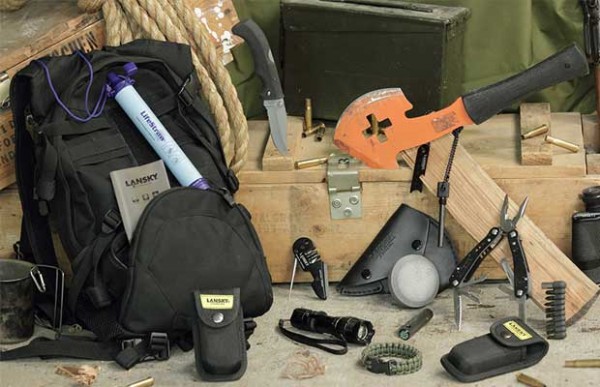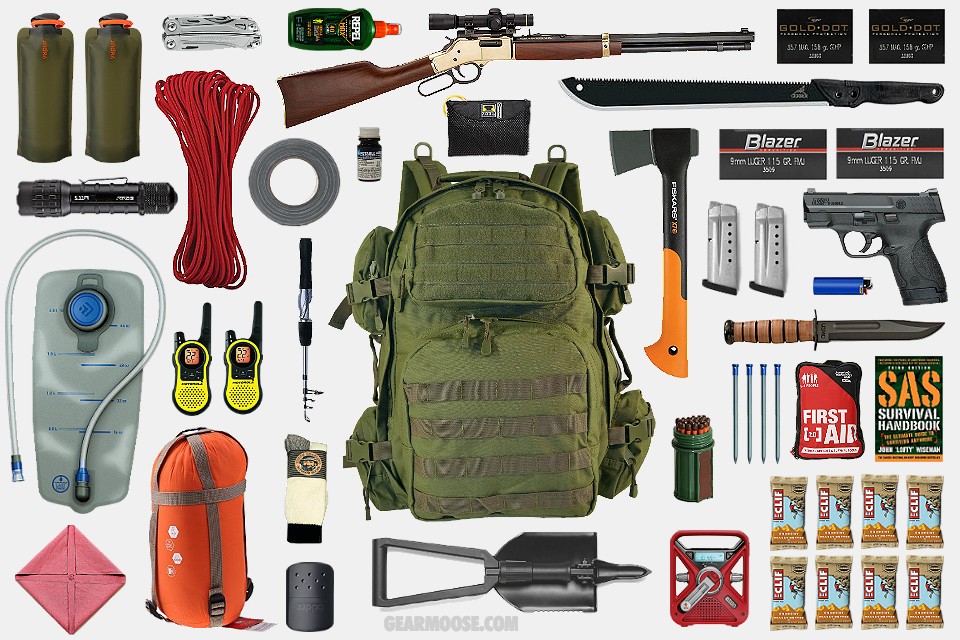
The weather can sometimes be harsh and unpredictable, which is why it's important to be prepared for every possible emergency weather scenario. Whether you plan to bug out or bug in during severe weather conditions, there are certain emergency supplies you should definitely stock up on. Having these essential items on hand could easily mean the difference between life and death. When SHTF, here are the absolute must-have items you need to survive extreme weather emergencies. (h/t to DoomsdayMoose.com)
Food and water
The last situation you'd want to find yourself in is starving and stranded in your home with no food or water. This is why you need to have enough food and water to last for at least 72 hours as part of your emergency rations. This means allocating around a gallon of clean drinking water per person, per day. As for food rations, you should stock up on nonperishable food items that are high in fat and protein. If you need to bug out somewhere, some lightweight snacks you can carry include high-protein dried fruits, biscuits, and crispbread. Make sure to pack a portable filter for purifying your water, in case you have to resort to other sources of drinking water.
First aid kit
Even small injuries can become life-threatening when neglected in the middle of a survival situation. You can mitigate these potential injuries by having a well-stocked first aid kit. It should contain bandages, gauze pads, burn gel, and disinfectants to treat minor cuts, burns, and wounds. If you have any chronic health conditions, be sure to stock up on the relevant medication to treat these as well. (Related: These are the items that you need in your first-aid kit if you just want to carry the bare minimum.)
Clothing and bedding
Staying warm is extremely important when dealing with cold weather. Make sure to have at least one complete set of warm clothes per person. This should include thermal underwear, a shirt with long sleeves, long pants, sturdy shoes, a coat or jacket, a hat, a scarf, and a pair of gloves. You should also have a pair of thick socks and sturdy shoes ready, in case you need to make a quick getaway. Furthermore, if you have to evacuate, you should also have a durable umbrella and a waterproof jacket with a hood. For bedding, if you don't have a comfortable sleeping bag, you should at least have a warm blanket that you can use for insulation.
Personal care products
Personal hygiene and sanitation are just as important during emergencies as they are during your normal, daily life, if not even more so. Prevent the spread of bacteria by stocking up on the necessary personal care products, such as hand soap, hand sanitizer, a shaving kit, a towel, antiseptic wipes, toilet paper, dental floss, a tube of toothpaste, and a toothbrush. If you are female, don't forget to keep some feminine hygiene products with you as well, just in case.
Emergency supplies
Some miscellaneous emergency supplies that might be useful to have on hand include portable radios and flashlights with extra batteries. In case the power grid fails, you can use these items so that you won't be in the dark, both literally and figuratively. The flashlight can provide a source of light, while the radio can keep you updated on the current situation of your local area. To truly be prepared for every situation, you should also have other useful emergency items, such as a paracord, a small whistle, a pocket knife, a lighter, and some matches.
Sources include:
Please contact us for more information.



















